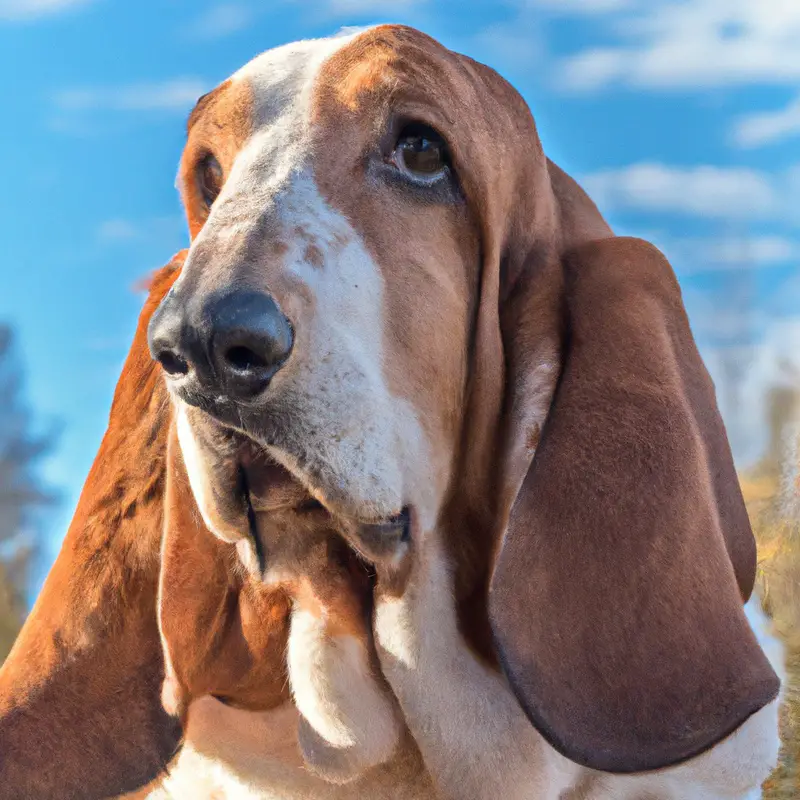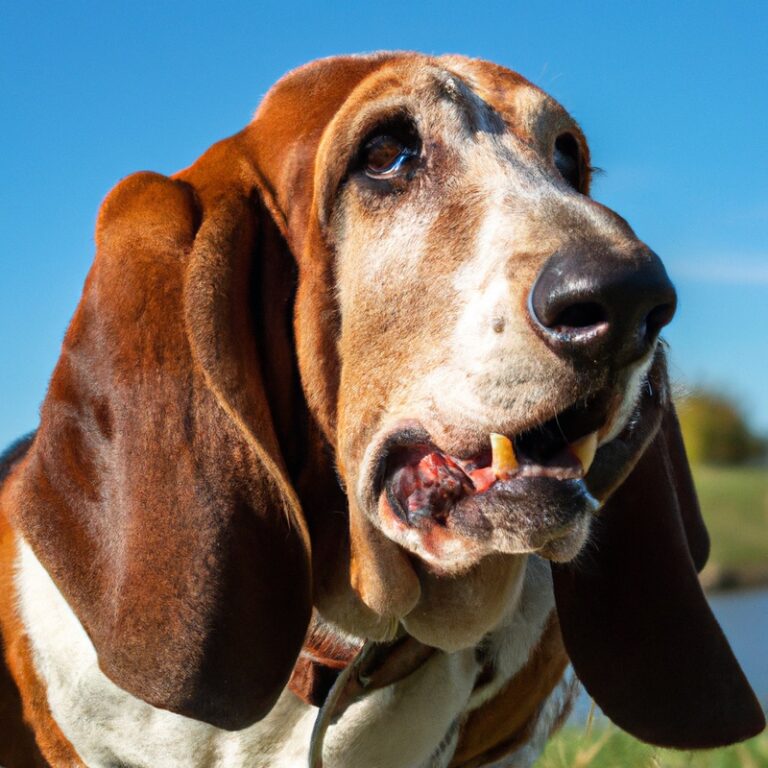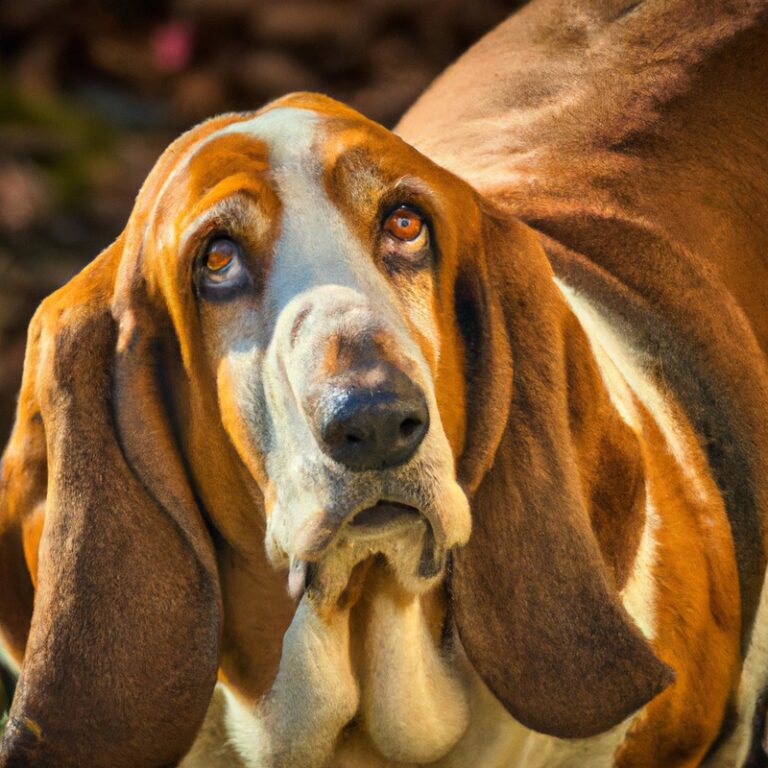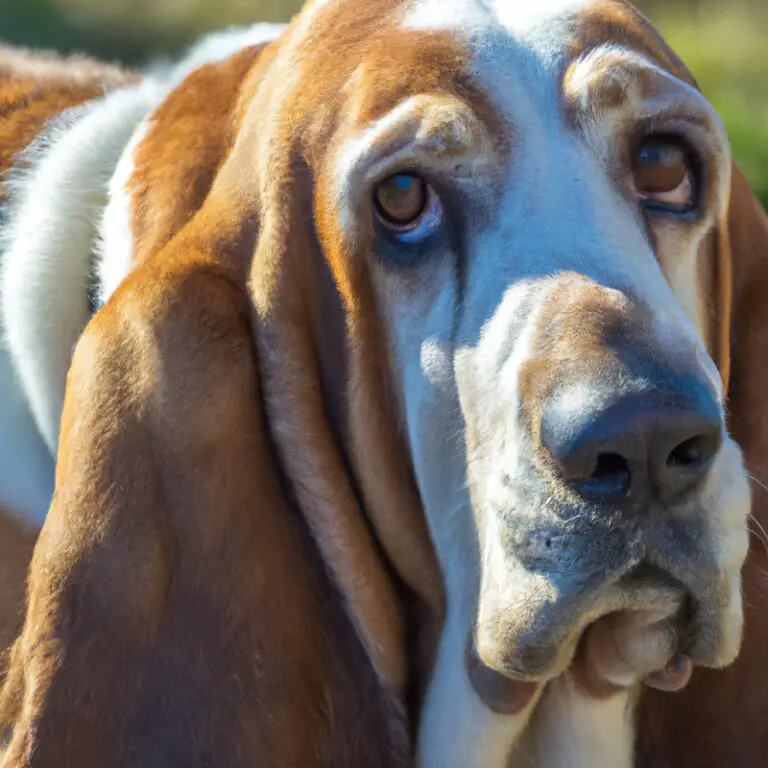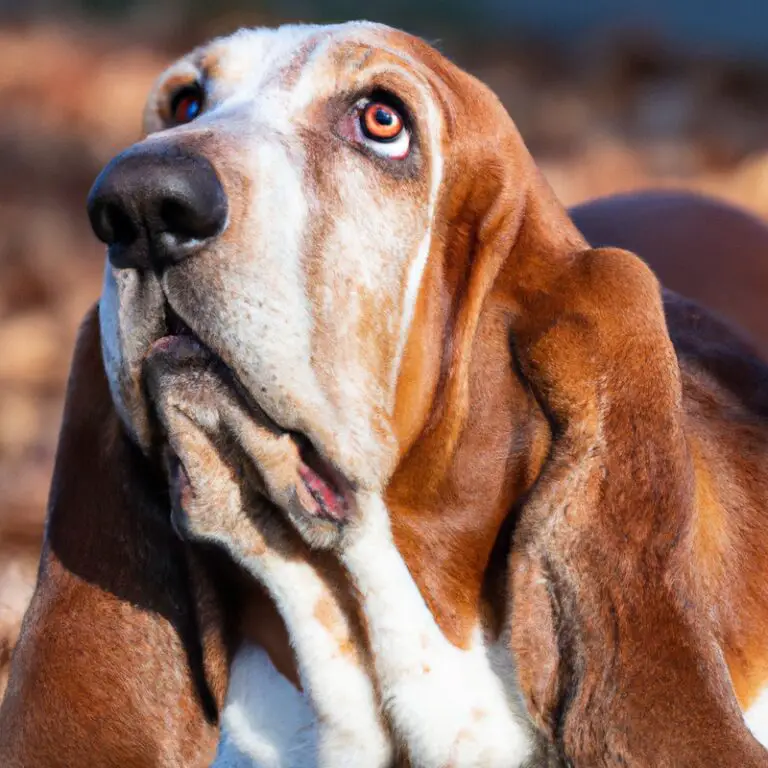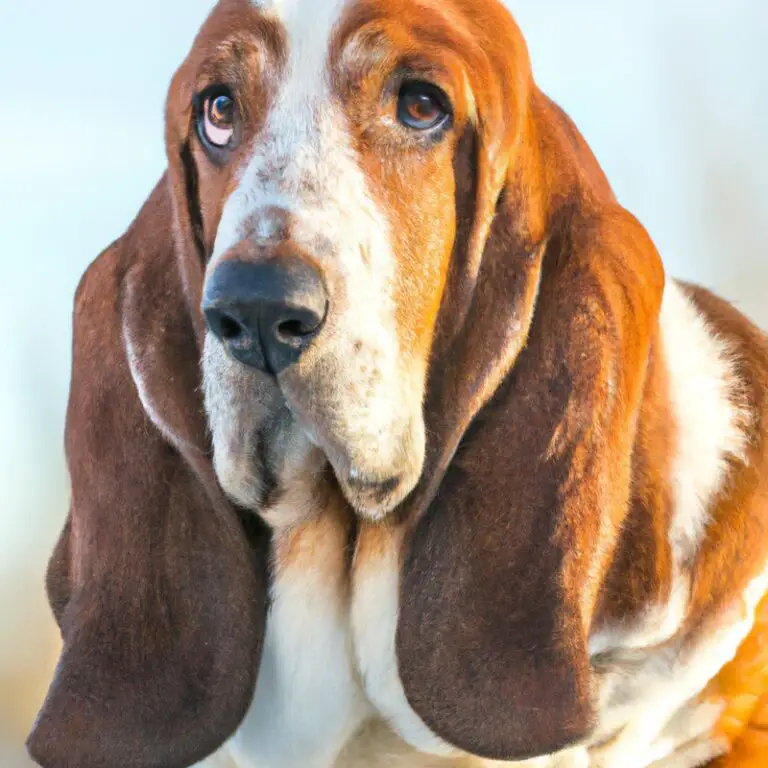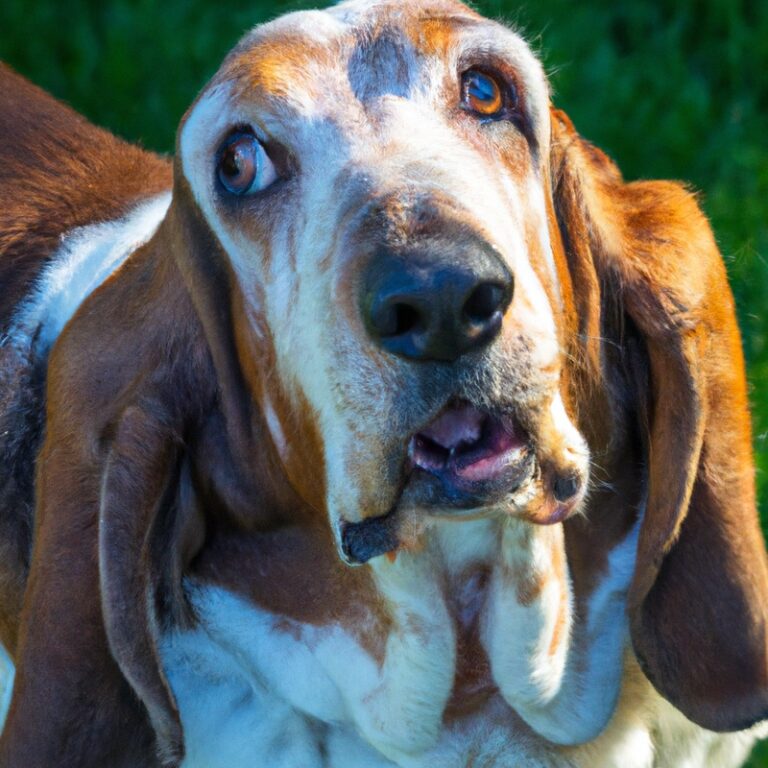How Do Basset Hounds React To Strangers Entering Their Territory?
Key Takeaways:
- Basset Hounds are generally friendly and welcoming to strangers.
- These dogs tend to rely on their sense of smell to assess newcomers.
- Basset Hounds may display signs of curiosity or alertness when encountering unfamiliar individuals.
- Proper socialization from an early age can help Basset Hounds in adjusting to new people in their territory.
Imagine this scenario: You’re peacefully enjoying a lazy afternoon at home, when suddenly, the doorbell rings. Your heart skips a beat as you realize there’s someone at the door—a stranger.
Now, think about your beloved Basset Hound.
How do they react when faced with the same situation? As an expert in all things Basset Hounds, I am here to shed light on this intriguing topic.
In this article, we’ll delve into the instinctual behaviors and territorial nature of Basset Hounds, as well as their initial response to strangers and the factors that influence their reaction.
Plus, I’ll share some invaluable tips on training and managing Basset Hounds when it comes to encounters with unfamiliar faces. So, let’s dive in and uncover the fascinating world of Basset Hounds and their reactions to strangers entering their territory!
| Reaction to Strangers | Description |
| Basset Hounds | Usually friendly and welcoming |
| 1. Alert | Bassets will bark to alert their owners of an intruder’s presence |
| 2. Curious | They may approach and investigate the stranger |
| 3. Non-Aggressive | Bassets rarely show aggression towards strangers |
Understanding the Basset Hound Breed
Physical Characteristics of Basset Hounds
Basset Hounds have distinct physical characteristics that make them easily recognizable.
They have a long body with short legs and large paws.
Their loose skin creates wrinkles, especially on their face and neck.
Basset Hounds also have droopy, long ears that hang low.
With a weight ranging from 50 to 65 pounds, they have a sturdy build.
Their short, dense coat comes in various colors, including tri-color, lemon and white, and red and white.
Additionally, Bassets have a calm and gentle expression that adds to their unique appearance.
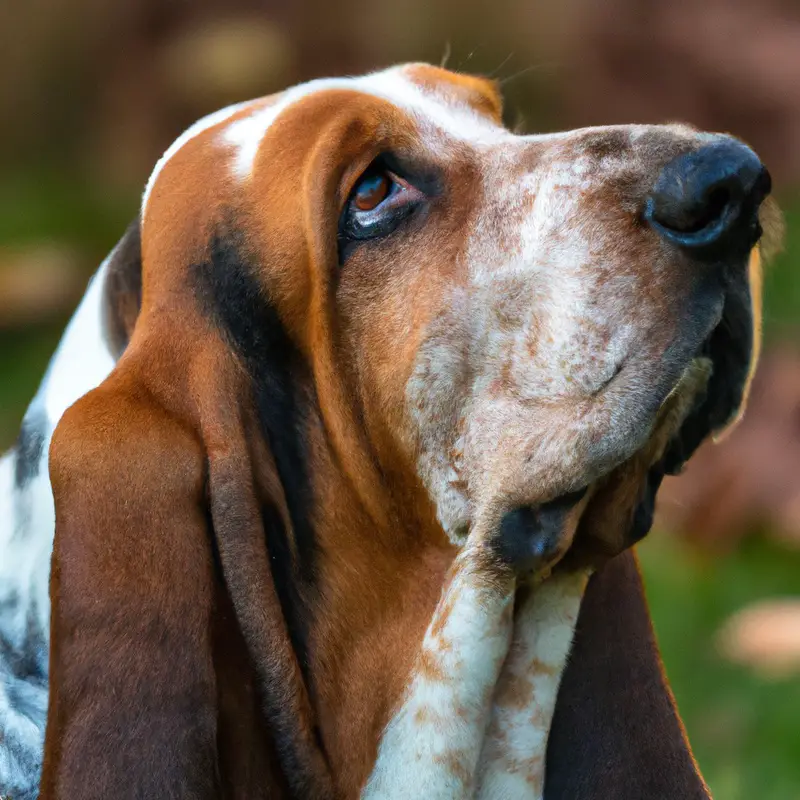
Personality Traits of Basset Hounds
Basset Hounds are known for their friendly and easygoing nature. They are generally calm, patient, and good-natured dogs.
Bassets tend to be social and enjoy the company of their family members.
They are also known to be great with children and other pets. Due to their strong scenting abilities, they may become easily distracted and follow their nose.
This breed can sometimes be stubborn and may be slow to respond to commands, but they are generally affectionate and gentle companions.
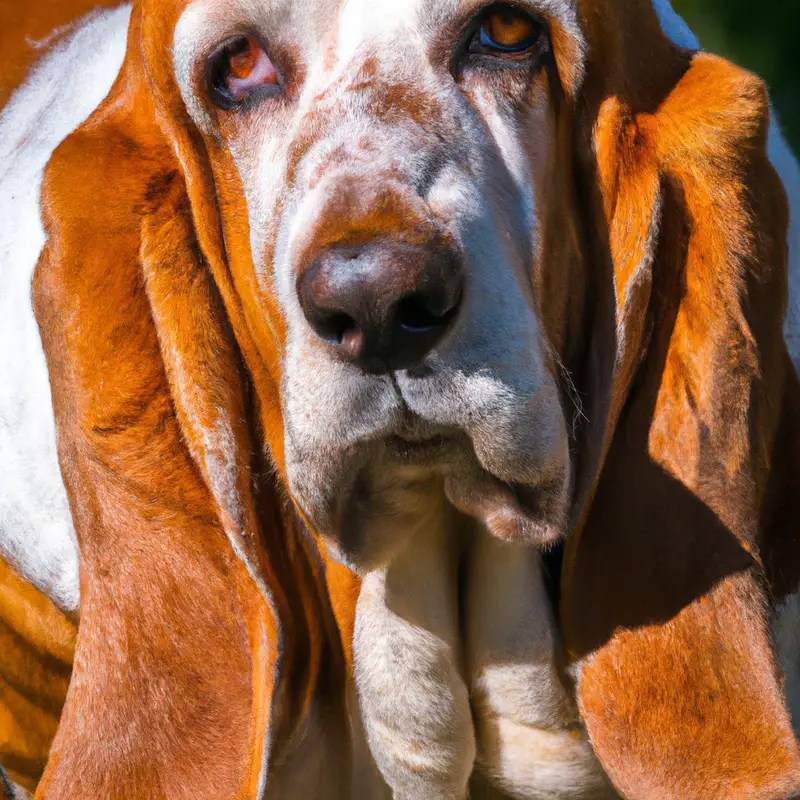
Basset Hounds and Territory
Instinctual Behaviors of Basset Hounds
Basset Hounds have certain instinctual behaviors that are characteristic of the breed.
One of these behaviors is their strong sense of smell.
They have been bred to be scent hounds, so they have an innate ability to track scents and follow their noses.
Another instinctual behavior of Basset Hounds is their love for food.
They are known to be quite food motivated and will often follow their noses to find tasty treats.
Additionally, Basset Hounds have a tendency to be more stubborn than some other breeds.
They have an independent streak and may not always be eager to follow commands.
It’s important to keep these instinctual behaviors in mind when training and interacting with your Basset Hound.
Territoriality in Basset Hounds
Territoriality is a common instinctual behavior in Basset Hounds. They have a natural desire to protect their space and belongings.
When strangers enter their territory, Basset Hounds may react with caution or suspicion.
This can include barking, growling, or even aggression in some cases. Understanding this territorial nature is important for owners to manage their Basset Hound’s behavior and ensure a safe environment for everyone involved.
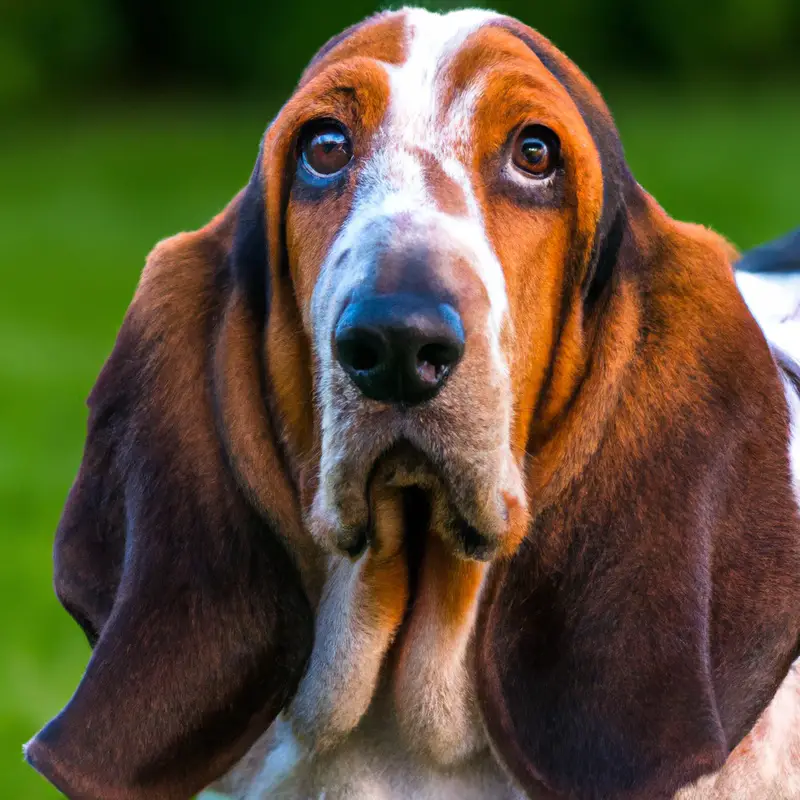
Basset Hounds’ Reaction to Strangers
Initial Response to Strangers
Basset Hounds typically have a friendly and calm initial response to strangers.
They may wag their tails and approach with curiosity.
However, some Basset Hounds may feel shy or anxious, resulting in a more reserved or wary reaction.
It’s important to consider each dog’s individual personality when encountering strangers.
Proper socialization and positive reinforcement training can help Basset Hounds feel more comfortable and confident in these situations.
Factors Influencing Basset Hounds’ Reaction
The factors that influence a Basset Hound’s reaction to strangers entering their territory can vary. Here are a few key factors to consider:
- Socialization: A Basset Hound that has been properly socialized from a young age is more likely to feel comfortable and less anxious when encountering strangers.
- Previous experiences: Negative experiences with strangers can result in fear or aggression towards new people. Positive experiences can help foster a more confident and friendly response.
- Breed instincts: Basset Hounds are scent hounds that have been bred to have a strong sense of smell and a protective nature. These instincts can influence their initial reaction to strangers.
- Owner’s behavior: A Basset Hound may pick up cues from their owner’s behavior when it comes to how they view and react to strangers. If an owner is nervous or anxious, it can impact the dog’s response.
Training Basset Hounds for Stranger Encounters
Socialization to Reduce Anxiety
Socializing your Basset Hound from a young age can help reduce anxiety when encountering strangers. It’s important to expose them to various people, places, and situations in a positive and controlled manner.
This can include visits to parks, pet-friendly stores, and interactions with different individuals.
Use treats, praise, and gentle handling to reinforce positive experiences. Consistency and routine are key, so make socialization a regular part of your Basset Hound’s life.
If anxiety persists, seeking professional help can provide additional guidance.
Positive Reinforcement Techniques
Positive reinforcement techniques are effective when training Basset Hounds to react positively to strangers. Instead of using punishment or harsh methods, I focus on rewarding desired behaviors.
Treats, praise, and affection are key tools in this approach.
Whenever my Basset Hound shows calm behavior around strangers or follows a command, I reward them immediately. Consistency and repetition are crucial for success, as well as patience and understanding.
With time and practice, positive reinforcement can help your Basset Hound feel more comfortable and confident around strangers.
Tips for Managing Basset Hounds with Strangers
Controlled Introductions
Controlled introductions are crucial when managing Basset Hounds with strangers. Here are some tips for successful introductions:
- Start by ensuring a calm environment and allowing the dog to approach the stranger at their own pace.
- Use positive reinforcement techniques and rewards to create positive associations with strangers.
- Gradually increase the exposure to strangers, starting with familiar faces and then introducing new individuals.
- Maintain consistency and routine in these introductions to help the dog feel secure.
- Seek professional help if necessary, especially if the dog shows signs of anxiety or aggression towards strangers.
Consistency and Routine
Consistency and routine are key when managing Basset Hounds with strangers. Bassets thrive on predictability, so establishing a consistent routine helps them feel secure and reduces stress.
Stick to a regular schedule for feeding, exercise, and toileting to maintain stability.
Additionally, ensure that your interactions with strangers are consistent. Encourage your Basset to have positive experiences with new people by using the same approach and providing rewards for calm behavior.
By maintaining a consistent routine and approach, you can help your Basset Hound feel more comfortable around strangers.
Seeking Professional Help if Necessary
If you’re struggling to manage your Basset Hound’s behavior around strangers, seeking professional help can be a good option. A qualified dog trainer or animal behaviorist can assess the situation and provide personalized guidance on how to address your dog’s specific needs.
They may recommend techniques for socialization, behavior modification, or training exercises to help your Basset Hound feel more comfortable and confident.
Remember, professional help can be a valuable resource when dealing with challenging situations to ensure the well-being of both you and your dog.
Final Verdict
Basset Hounds can exhibit a range of reactions when strangers enter their territory. Their instinctual behaviors and territorial nature can contribute to reactions such as barking, growling, or even aggression.
However, with the right training and socialization, these reactions can be managed effectively.
By focusing on reducing anxiety through positive reinforcement techniques and controlled introductions, owners can help their Basset Hounds feel more comfortable and confident around strangers. Additionally, consistency and routine in their daily interactions can also contribute to a more positive response.
If needed, seeking professional help can provide further guidance.
With patience and understanding, Basset Hounds can learn to navigate stranger encounters with ease.

